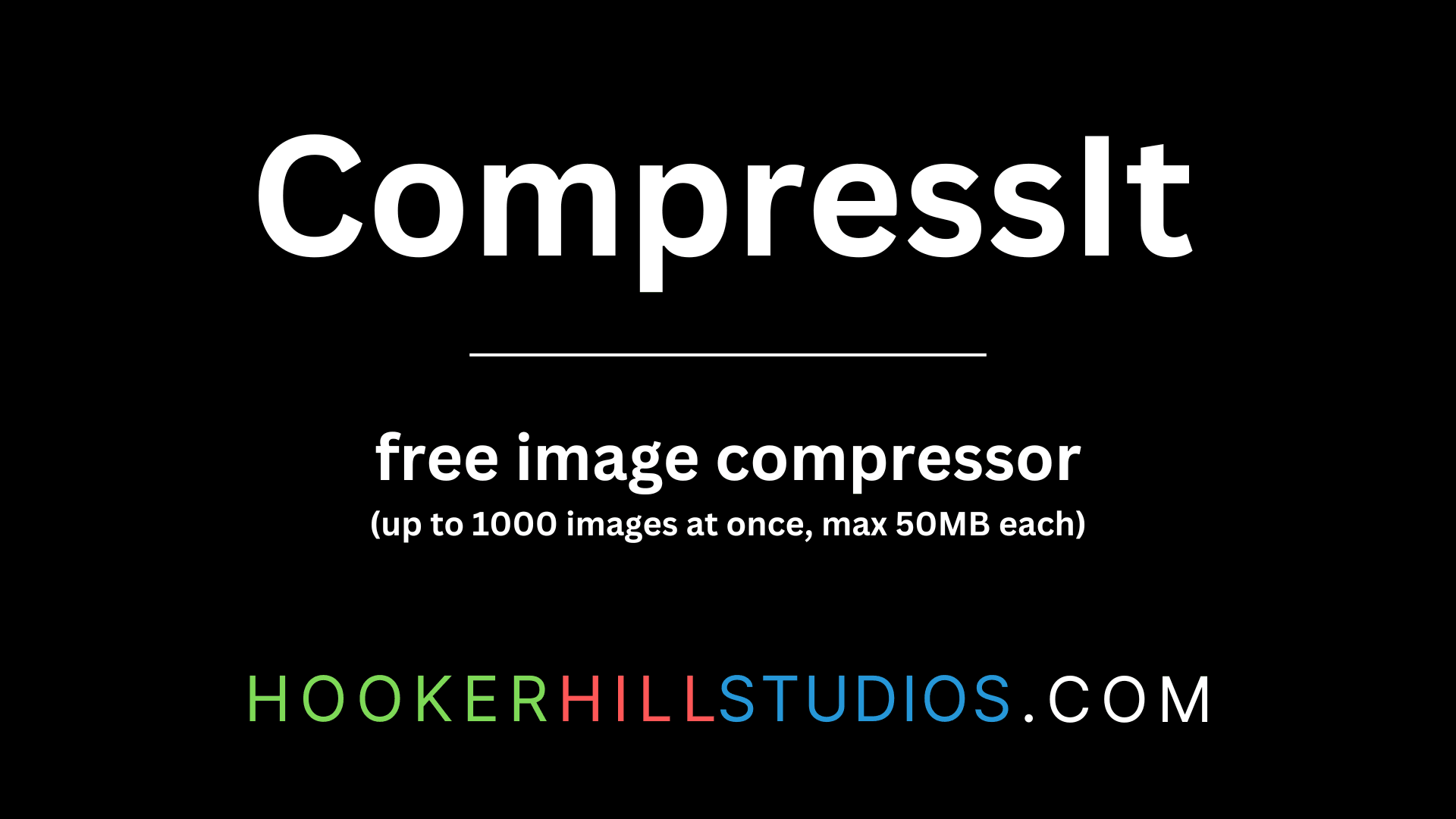Why JSON-LD is Key for SEO: Boost Visibility & Rank Higher

Table Of Contents
- Introduction: What is JSON-LD and Why It Matters for SEO
- What are the Benefits of Using JSON-LD?
- Different Types of Web Pages and How JSON-LD Can Help
- Step-by-Step Guide: How to Implement JSON-LD
- Step 1: Choose the Correct Schema Type
- Step 2: Add JSON-LD to Your Web Page
- Step 3: Validate the Markup
- Step 4: Monitor Results with Google Search Console
- Examples of JSON-LD for Different Web Page Types
- Example 1: Blog Article
- Example 2: Product Page
- Example 3: Recipe Page
- Example 4: Event Page
- How to Implement JSON-LD for Specific Content Types
- Testing and Monitoring Your JSON-LD
- Related Articles
- Related Services by Hooker Hill Studios
- Conclusion: Why You Should Use JSON-LD
How JSON-LD Helps Google Understand Your Pages and Boost SEO
Introduction: What is JSON-LD and Why It Matters for SEO
In the ever-evolving landscape of SEO, structured data has become a crucial element for helping search engines understand the content of web pages. Among the various formats of structured data, JSON-LD (JavaScript Object Notation for Linked Data) stands out as the preferred method due to its simplicity and flexibility. JSON-LD allows webmasters to annotate their pages with specific data that provides context about the content. By utilizing JSON-LD, you can improve your website's visibility in search results, increase the likelihood of appearing in rich snippets, and enhance the overall user experience.
What are the Benefits of Using JSON-LD?
- Improved Search Results Appearance:
- One of the most significant advantages of using JSON-LD is its potential to enhance your website's appearance in search results. By implementing structured data, you can create rich snippets, which display additional information such as star ratings, images, and pricing directly in search results.
- Clearer Content Understanding for Google:
- JSON-LD helps search engines better understand the context of your content. By clearly outlining the relationships between different elements on your page, you make it easier for Google to categorize and index your content accurately.
- Compatibility with Voice Search:
- As voice search continues to rise in popularity, structured data becomes increasingly essential. JSON-LD can help optimize your content for voice queries by providing search engines with clear, structured information that can be easily retrieved in response to voice searches.
- Easy Implementation:
- JSON-LD is straightforward to implement, as it can be added to the head or body of your HTML without interfering with the existing markup. This flexibility makes it an attractive option for developers looking to enhance their site’s SEO without extensive restructuring.
Different Types of Web Pages and How JSON-LD Can Help
Various types of web content can benefit from structured data. Here are a few examples:
-
Blog Articles: Use JSON-LD to specify the author, date, and article title, making it easier for search engines to understand your content.
-
Product Pages: Implement structured data to provide details about product prices, availability, and reviews, enhancing visibility in search results.
-
Recipe Pages: Use JSON-LD to structure ingredients, cooking instructions, and cooking times, which can lead to rich snippets.
-
Events: Mark up event details such as location, time, and performers to enhance discoverability. Local Businesses: Provide essential business details like address, phone number, and hours of operation.
Step-by-Step Guide: How to Implement JSON-LD
Step 1: Choose the Correct Schema Type
Determine which schema type fits your content best. Common types include:
Articlefor blog posts and news articlesProductfor e-commerce sitesRecipefor cooking websitesEventfor events and webinarsLocalBusinessfor brick-and-mortar establishments
Step 2: Add JSON-LD to Your Web Page
Once you’ve identified the correct schema type, you can create the JSON-LD markup. The JSON-LD script can be placed either in the <head> or <body> of your HTML document. Here’s a basic example:
<script type="application/ld+json">
{
"@context": "https://schema.org",
"@type": "Article",
"headline": "How JSON-LD Boosts SEO",
"author": {
"@type": "Person",
"name": "John Doe"
},
"datePublished": "2024-10-01",
"description": "An in-depth guide to using JSON-LD for improving Google rankings.",
"publisher": {
"@type": "Organization",
"name": "Backlink Blog",
"logo": {
"@type": "ImageObject",
"url": "https://example.com/logo.png"
}
}
}
</script>advertisement
Step 3: Validate the Markup
After adding the JSON-LD script, it's crucial to ensure that your markup is valid. Use tools such as Google’s Rich Results Test or the Schema Markup Validator to check for errors and ensure compliance with Google’s structured data guidelines.
Step 4: Monitor Results with Google Search Console Once implemented, use Google Search Console to track your structured data performance. It can help you identify any errors or issues that might affect your content's visibility in search results.
Step 4: Monitor Results with Google Search Console
Once implemented, use Google Search Console to track your structured data performance. It can help you identify any errors or issues that might affect your content's visibility in search results.
Examples of JSON-LD for Different Web Page Types
Example 1: Blog Article
This example shows how to define a blog article using JSON-LD.
{
"@context": "https://schema.org",
"@type": "Article",
"headline": "How JSON-LD Boosts SEO",
"author": {
"@type": "Person",
"name": "John Doe"
},
"datePublished": "2024-10-01",
"description": "An in-depth guide to using JSON-LD for improving Google rankings.",
"publisher": {
"@type": "Organization",
"name": "Backlink Blog",
"logo": {
"@type": "ImageObject",
"url": "https://example.com/logo.png"
}
}
}Example 2: Product Page
For e-commerce sites, use JSON-LD to provide product information:
{
"@context": "https://schema.org",
"@type": "Product",
"name": "Backlink Blog Subscription",
"image": "https://example.com/product-image.jpg",
"description": "A lifetime subscription to the Backlink Blog platform.",
"brand": {
"@type": "Brand",
"name": "Backlink Blog"
},
"offers": {
"@type": "Offer",
"priceCurrency": "USD",
"price": "19.99",
"availability": "https://schema.org/InStock",
"url": "https://backlink-blog.vercel.app/buy-now"
}
}Example 3: Recipe Page
This example shows how to mark up a recipe:
{
"@context": "https://schema.org",
"@type": "Recipe",
"name": "Spaghetti Carbonara",
"author": {
"@type": "Person",
"name": "Jane Doe"
},
"datePublished": "2024-09-25",
"description": "A classic Italian pasta dish.",
"recipeIngredient": [
"200g spaghetti",
"100g pancetta",
"2 large eggs"
],
"recipeInstructions": [
{
"@type": "HowToStep",
"text": "Boil the spaghetti."
},
{
"@type": "HowToStep",
"text": "Fry the pancetta."
}
],
"aggregateRating": {
"@type": "AggregateRating",
"ratingValue": "4.5",
"reviewCount": "275"
}
}Example 4: Event Page
To mark up an event:
{
"@context": "https://schema.org",
"@type": "Event",
"name": "Backlink Blog Webinar",
"startDate": "2024-12-10T19:00:00",
"location": {
"@type": "Place",
"name": "Online",
"url": "https://backlink-blog-webinar.com"
},
"description": "A free webinar on how to use Backlink Blog to improve SEO.",
"performer": {
"@type": "Person",
"name": "John Doe"
}
}How to Implement JSON-LD for Specific Content Types
-
Blog Articles: Use the Article schema to help Google recognize news articles or blogs. This can improve your chances of appearing in Google’s Top Stories or similar features.
-
Product Pages: Implement the Product schema to show product info like prices, availability, and reviews in search results.
-
Recipe Pages: Recipes marked up with the Recipe schema can appear in rich results, complete with instructions, ingredients, and reviews.
-
Event Pages: Mark up events with the Event schema to ensure they appear in Google’s event carousels or rich results.
-
Local Businesses: Add the LocalBusiness schema to provide details about a business, such as location, opening hours, and contact information.
Testing and Monitoring Your JSON-LD
-
Google Rich Results Test: Utilize this tool to test the validity of your structured data before going live.
-
Google Search Console: Monitor your structured data performance. Google Search Console can help you identify structured data errors and see how your content performs in search results.
advertisement
Related Articles
- Mastering SEO
- A Comprehensive Guide to SEO Optimization
- Benefits of Having a Blog
- How To Increase Chances of Getting Sitelinks in Search Results
Related Services by Hooker Hill Studios
We offer a range of services to help you achieve your SEO goals:
Conclusion: Why You Should Use JSON-LD
In summary, implementing JSON-LD is a powerful strategy for enhancing your website’s visibility and performance in search results. By providing search engines with structured data, you improve the chances of appearing in rich snippets and other enhanced search features, ultimately attracting more visitors to your site. Don’t miss out on the benefits of JSON-LD—start implementing it today for better SEO outcomes!
advertisement
About the Author

Hi, I'm Jared Hooker, and I have been passionate about coding since I was 13 years old. My journey began with creating mods for iconic games like Morrowind and Rise of Nations, where I discovered the thrill of bringing my ideas to life through programming.
Over the years, my love for coding evolved, and I pursued a career in software development. Today, I am the founder of Hooker Hill Studios, where I specialize in web and mobile development. My goal is to help businesses and individuals transform their ideas into innovative digital products.
Read Recent Articles
Recent Articles
View All
CompressIt - Fast & Efficient Image Compression Tool for Web Optimization
December 02, 2024




to join the conversation